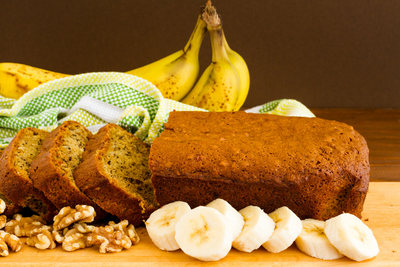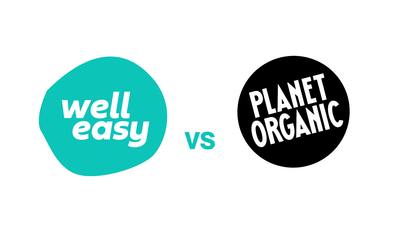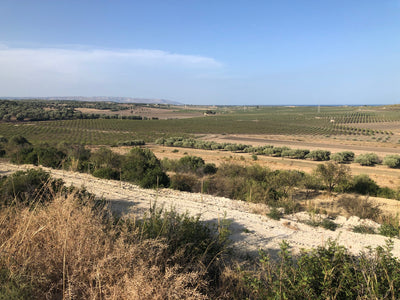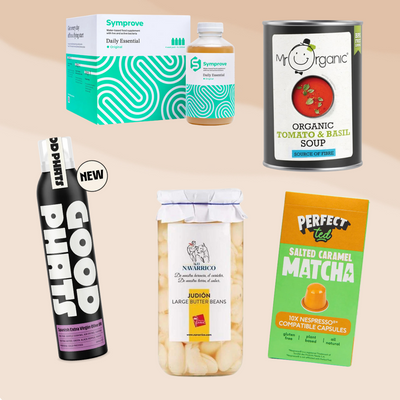How to Save Money and Shop Healthy on a Budget
How to Save Money and Shop Healthy on a Budget
How to Save Money and Shop Healthy on a Budget
Feeling a bit uneasy about the increase in the cost of living? You're not alone - 87% of adults in the UK have reported an increase in their cost of living. Plus, the current inflation rate of 13.1% on food and grocery items isn't helping (yikes!)
At WellEasy we're on a mission to help everyone access healthy groceries at a reduced cost. On average, WellEasy members save around £200-300 a year shopping with us for kitchen staples, home supplies, and much more.
Meaning, we are here to help you. Here’s our up to date guide with all the tips and tricks on what the best way is to shop healthy and save money.
1. Visit the bulk section of your local health store
Buying in bulk is always cheaper because the costs of processing, delivery and packaging are heavily reduced for the supplier. In your local health store you can find bulk refill stations of nuts, grains, seeds and beans which are always much cheaper than just buying an individually wrapped package.
To give an example, a can of organic black beans can range from £80p to £1.30 depending on the supermarket you shop at. These cans will likely give you 2 cups of cooked black beans in total but you can buy up to 500g of dry beans from the buckets at the health food store for a similar cost. This will likely give you 5-6 cup fulls when cooked which is nearly 3x as much for the same price.
Lot’s of these local health food stores have similar savings on wholefood organic items like seeds, nuts, grains and dried fruit and they can be found on most high streets.
2. The Supermarket may not be so super after all
Although highly convenient, supermarkets in the UK will deliberately mark up the prices of organic or healthier foods just because it’s considered a 'premium' product. This mark-up can end up with you paying anywhere from 20%-50% more for something organic, compared to the price it could actually be sold at. Places like Wholefoods Market and Planet Organic should be out of the question when it comes to this.
To put this into context, next time you walk into Tesco, checkout the price of an organic whole chicken. Just one of these whole chickens is 298% more expensive than a regular whole chicken and doesn’t reflect the actual price that Tesco purchased this ethical poultry at. Focused on convenience and location, supermarkets like Tesco deliberately try to generate excess profit from organic items like meat and vegetables believing alternatives to be hard to come by.
Steer clear of the supermarkets except for products you know you’re paying a fair price for.
3. Choose less but higher quality meats
Following on from the previous point, where should we look to buy meat from?
Organic certification from the soil association not only gives certification that meat is organic but also that the welfare of the animal was very high. Meat can be very expensive and in the UK and we often consume too much.
Instead, we’re better off buying less and making vegetables the centre of attention. But for those that are still meat lovers, it’s best to visit your local farmers market or butchers and follow a ‘nose-to-tail’ approach.
Unconventional and cheaper cuts like shoulder and belly can present a more affordable option, as well as highly nutritious organs such as liver and kidney which can be anywhere up to half the price of muscle meat like chicken breast.
4. Utilise the freezer
The freezer is your friend. As nice as they may seem, make sure your freezer isn’t full of pizzas, ready meals and other processed foods. Even the one’s that are labelled ‘healthier’ or organic are still usually marked up in price and may not have much nutritional value to them either.
Instead, use your freezer for buying bulk organic meats, fish, fruits, vegetables and other items to preserve their shelf life. You’ll save far more money doing bigger shops less often and preserving these items than you will doing smaller shops often, and especially on the wrong foods.
5. Reduce your food waste
It sometimes goes over our heads that the price we pay for items is usually based on the weight of them. Yet all of us in the UK have a terrible habit of throwing very edible parts of foods away. Think broccoli stems and you’ll know what I’m talking about.
Things like the stem of a kale leaf don’t have the greatest of taste in a raw salad so we often cut them off. Instead save the stems and cook them up with some spices, garlic, a good olive oil and they can be a great addition to any evening meal.
One thing these stems and extra bits are great for is something like DIY soup kits which can also be kept in a freezer and used if and when you need them.
6. Go for longer shelf life items
When you take a bit more time to consider your food shop, don’t forget how many high quality wholefood organic ingredients can be bought with a long shelf life. Grains, nuts, seeds, beans, pulses, dried fruits and tons of others can all last a long while in our cupboards.
When you find a good outlet that you can order these ingredients in bulk and have room to store them, you’ll save yourself time and money buying them on a more regular basis.
If you’re someone that’s very passionate about the quality of their food, snacks, household products and many other things, a good place to go to get these items in bulk and save money to is online membership store www.welleasy.co.uk
7. Find a farmers market
Just a quick google search online will show you where your nearest farmers market is. But don’t forget to shop smart whilst you’re there. Unlike walking into Tesco’s or Sainsbury’s, you can still negotiate the price of fruit, vegetables and meats at a farmers market. Even better, the stuff that’s in season tends to be produced in abundance so these are prime targets to get some wiggle room on.
When you build a relationship with your favourite farmers or vendors, you’ll start to ensure future discounts as you remain loyal and continue supporting their trade. On top of that, always buy in bulk where you can too as you’ll maximise any additional discount you receive.
Farmers and vendors at the market don’t have to worry about travel or delivery costs, as well as packaging and other bits. All of this gives them more leniency and reduction in their prices.
One of the best secrets though is to arrive slightly later to the market. This is when the farmers are most likely to negotiate with you and you’ll get a better price on the products or deals they haven’t fully sold yet.
8. Choose good membership retailers like WellEasy for your favourite healthy and organic brands
Today there are retailers and online grocery stores popping up everywhere. If you use these services however you will no doubt end up paying premiums on top of the things you’re buying and especially if you’re trying to get it delivered in 10 minutes.
Instead, there are some amazing membership stores online now like WellEasy where they encourage more considered consumption and have an awesome range the best organic brands available at up to 35% off RRP. Doing a monthly shop of all your healthy and organic staples can save you anywhere up to £50 each time depending on how much you buy, and saves you from having to go anywhere near the supermarkets.









